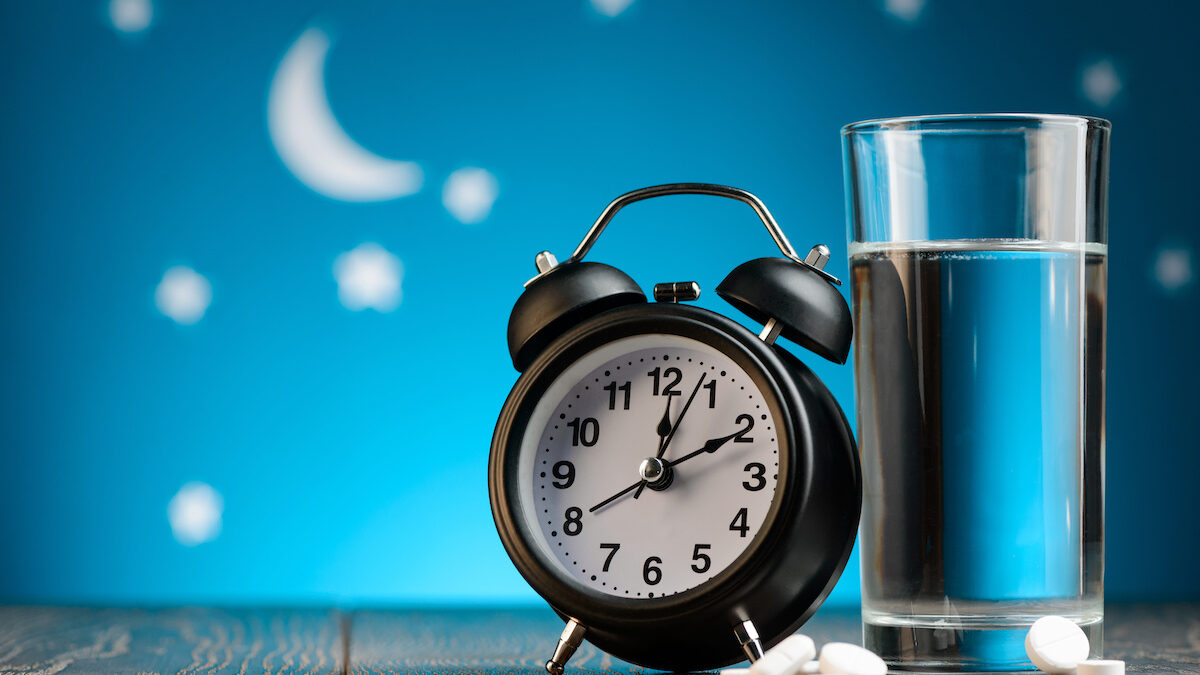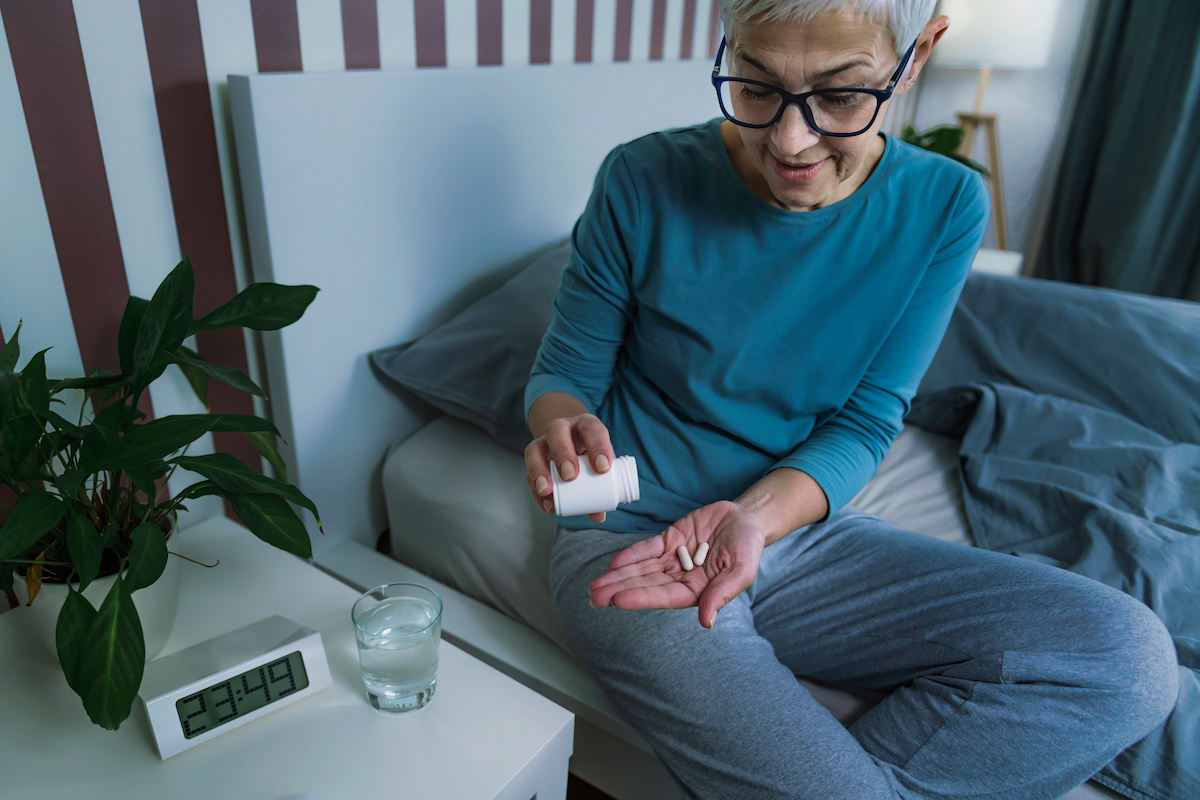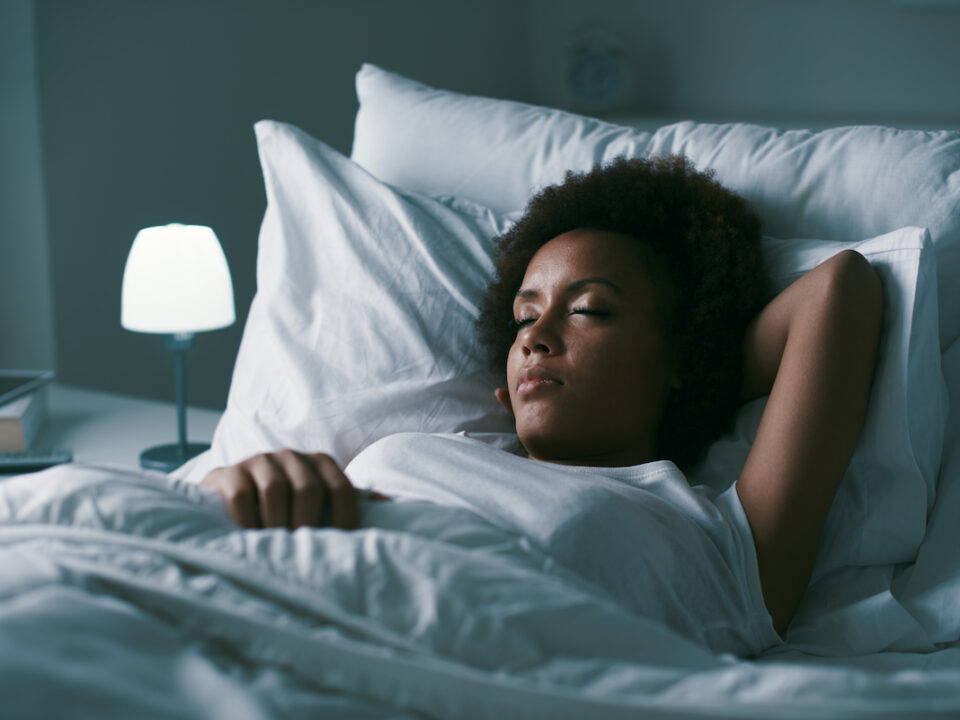Everything You Need to Know About Melatonin

Looking to get a good night’s sleep? As one of the most popular over-the-counter sleep aids, this is a staple sleeping aid for many since the 1990s. Aside from its ability to help induce and maintain sleep, melatonin offers benefits such as the ability to improve cognition, mood, and even skin health.
As melatonin is produced naturally by the body, there is no need to worry about side effects. However, the supplement is only available in a few different forms, such as capsules and tablets. Unlike other supplements, such as omega-3 fish oil, which has a plethora of different forms, like capsules, tablets, liquids, and injections, the options for taking it aren’t as plentiful.
If you take melatonin or you’re considering it to help you sleep at night, this guide will give you insight on everything that you need to know.
What is Melatonin?
Melatonin is produced in the brain. It has many functions in the body. Melatonin helps to maintain the body’s circadian rhythm and helps to promote sleep.
Normally coming from the pineal gland, melatonin is in the brain. It is produced at night in dark conditions and secreted into the blood during darkness. The idea is to promote sleep and wakefulness by stimulating or slowing down the release of other hormones and neurotransmitters, such as dopamine and serotonin.
Melatonin is synthesized in the pineal gland, which is a small endocrine gland located in the midbrain just behind the eyes. It is a nonspecific neurohormone that acts both as a hormone and as a neurotransmitter.
Some foods are rich in melatonin. These foods include tomatoes, mangoes, oranges and bananas. Melatonin is not only produced in humans. It is also produced in animals, plants, and even fungi.
What is the Purpose of Melatonin?
It regulates the sleep cycle and promotes proper hormonal function. Melatonin is secreted by the pineal gland at night, promoting sleepiness. Melatonin production stalls when there is light, so it is important to get enough light in the morning and evening.
Melatonin is important for healthy sleep. It is released at night and is responsible for telling the body when it should be asleep. Back in the early eras human life and even through the 1800s, there was no exposure to indoor lighting. Once it became dark, melatonin was naturally released.
Now with indoor lighting and screen time, we are constantly looking at light during our time awake.This exposure to light in the middle of the night prevents us from producing melatonin and in turn, can cause sleep deprivation. This is why it’s important to stay away from watching TV or using tablets or smartphones before bed.
Why are You Having Trouble Falling Asleep?
If you want to use melatonin for sleep, you are probably having trouble falling asleep and staying asleep.
There are several reasons why someone will have problems falling asleep.
One of the most common reasons is stress. If stress comes from your , financial problems, or other factors, you might have difficulty falling asleep at night. Stress causes the body to release cortisol, a stress hormone, which can have a negative effect on the quality of your sleep.
Another reason that you may have trouble falling asleep is due to blue light exposure. A typical problem for those who work at a computer screen for eight hours or more daily is that their circadian rhythm changes from the blue light.
A variety of other factors contribute to people who have trouble falling asleep. This includes difficulty in getting comfortable, too much light in the room, pain or discomfort, pain or discomfort in the arms, legs, or back, stress or anxiety, and other problems. Sometimes falling asleep is a problem for people with a lot of energy.
People with high energy may have trouble going to sleep because their minds can’t turn off. This can cause anxiety when going to sleep and then the difficulty in falling asleep. Both anxiety and depression can make it difficult to fall asleep and stay asleep.
Using this Supplement for Sleep
Regardless of the reason why you have trouble falling asleep or staying asleep, you might think about taking a sleep aid to solve the problem. Melatonin is a popular choice for helping people get to sleep. Some studies have found that it decreases the amount of time it takes to fall to sleep and may increase the total amount of sleep.
In other studies, melatonin had no effect on the duration of sleep or was even associated with a decrease in total sleep time. It is probably best to experiment with melatonin and see if it helps you. You should also experiment with the timing or dosage.
When Should You Take Melatonin?
Scientific studies suggest that melatonin does improve the quality of sleep, but it does not shorten the time it takes for people to fall asleep.
Melatonin is usually taken in the evening, at a time when your natural levels of the hormone are low. In the morning time, when your melatonin levels are high, there is no need to take melatonin. As long as you take melatonin in the evening, levels may not be high enough in the morning to cause drowsiness.

Is this Supplement Safe?
Many of us think twice about what goes into our bodies. Is melatonin safe to use as a sleep aid? This is a valid concern when it comes to taking supplements. The short answer is yes, melatonin is safe.
But let’s address the question, is melatonin a hormone or a drug? If you’re using it to fall asleep, it’s a supplement. Although melatonin occurs naturally in the body and comes from the pineal gland, it is a dietary supplement. The FDA regulates dietary supplements less strictly than drugs.
However, this doesn’t make it unsafe to use.
According to WebMD, Melatonin is safe for short-term use. Long-term use still remains in question and as of now there is no approval for this purpose. Melatonin is not regulated by the FDA so dosages may vary. For this reason, people should consider taking the lowest effective dose for short periods of time.
Can Kids Take it for Sleep?
Do you have a child who has difficulty going to sleep or staying asleep? Some kids have a lot of trouble settling down for bed, even with a consistent and relaxing nighttime routine.
If this sounds familiar, you may want to consider adding melatonin to your child’s bedtime routine. This avenue can provide relief for many kids who have trouble sleeping.
Kids also produce melatonin naturally, just like adults. It is known to help regulate your child’s sleep cycle. It is also possible that your child may need melatonin supplements if he or she is struggling to sleep. It’s generally safe to give your child melatonin. However, you’ll want to discuss this with your child’s pediatrician before moving forward.
Natural Ways to Get a Good Night’s Sleep
If you are thinking about the quality of your sleep, the good news is that there are several activities you can do to promote healthy sleep.
The following is a list of some of the most effective sleep-promoting activities:
- Take a hot bath before bed to help you relax.
- Stay away from stimulating activities such as watching TV or playing video games during your last hour of the day.
- Instead, try quiet activities that promote restfulness such as reading, knitting, or listening to music.
- Eat dinner earlier in the evening.
- Remove caffeine from your diet as much as possible. Caffeine has a half-life of six hours, so one cup taken at 10:00 AM can still be in effect at 4:00 PM.
- Caffeine is a stimulant and affects the quality of your sleep at night.
- Caffeine can also trigger sleep apnea, and can exacerbate the symptoms of restless leg syndrome and periodic limb movement disorder.
- Sleep on a regular schedule. Go to bed and wake up at the same time every day, even on weekends.
Having problems with sleep? Give our office a call. We can help you find healthy solutions to get better sleep and prescribe medication as necessary.

